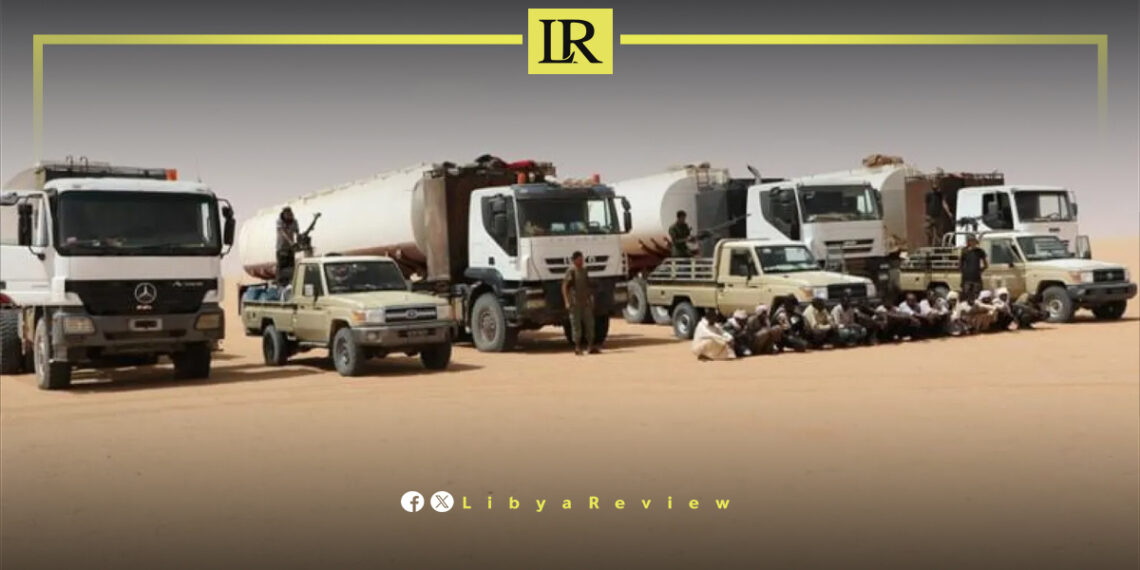Libya is losing an estimated $750 million each year due to rampant fuel smuggling, according to recent reports, highlighting one of the most damaging economic challenges facing the country.
A study by the World Bank revealed that more than 495 million liters of fuel are smuggled out of Libya annually, equivalent to more than 17 percent of total domestic consumption.
The report underlines how subsidized fuel, meant to benefit Libyan citizens, is instead being siphoned off and sold illegally across borders, depriving the state of desperately needed revenue.
The Central Bank of Libya previously noted that fuel subsidies cost 12.8 billion dinars during the first 11 months of 2024 alone. Despite these vast expenditures, fuel shortages persist across the country, forcing citizens into long queues at filling stations while smugglers profit.
The crisis is sparking growing public anger. In Zawiya, west of Tripoli, protesters recently shut down the depot of the Brega Oil and Gas Marketing Company at the city’s refinery. Demonstrations, which lasted for three days, were triggered by worsening shortages and hours-long waits for fuel. Protesters warned of escalation if no solutions are provided.
Fuel smuggling has long plagued Libya’s economy, thriving on weak border security, corruption, and the presence of armed groups that protect lucrative smuggling routes. Analysts warn that the problem not only drains the economy but also undermines state authority, feeds organized crime, and prolongs instability.
Experts say tackling the crisis requires urgent reforms, including better subsidy management, stricter enforcement at borders, and stronger measures against smuggling networks.


